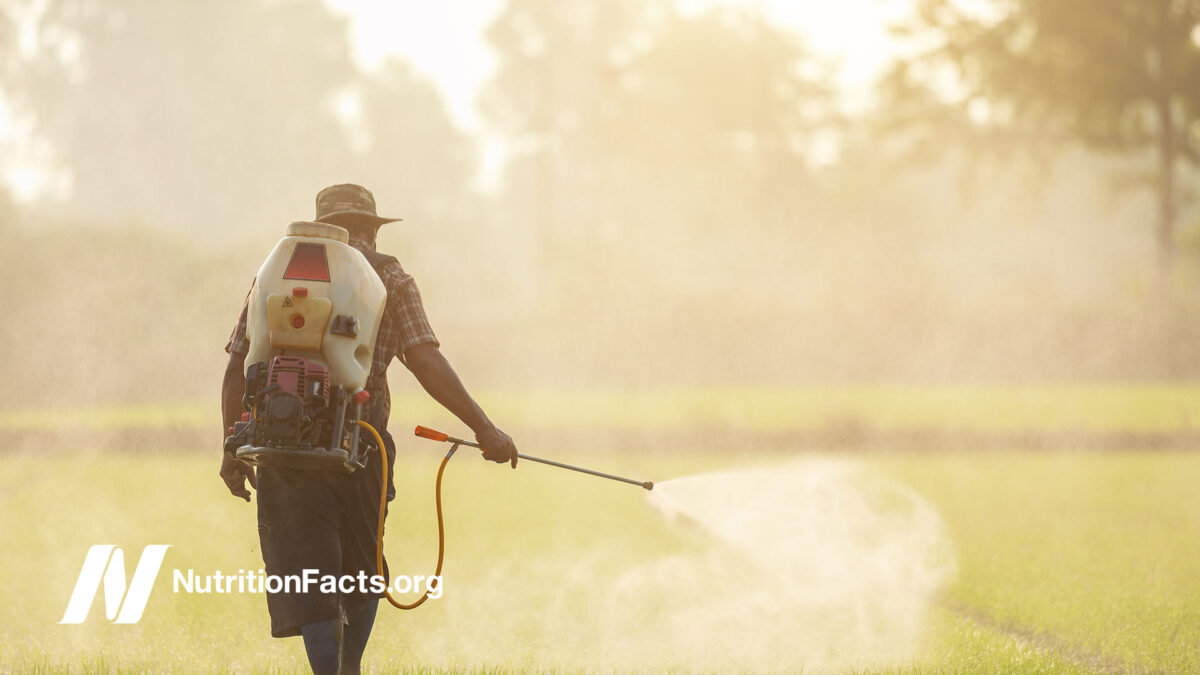
Protein, Puberty, and Pollutants
The early onset of puberty in girls associated with animal protein consumption may be due to endocrine-disrupting chemical pollutants in the meat supply.
 14
видео
14
видео

The early onset of puberty in girls associated with animal protein consumption may be due to endocrine-disrupting chemical pollutants in the meat supply.
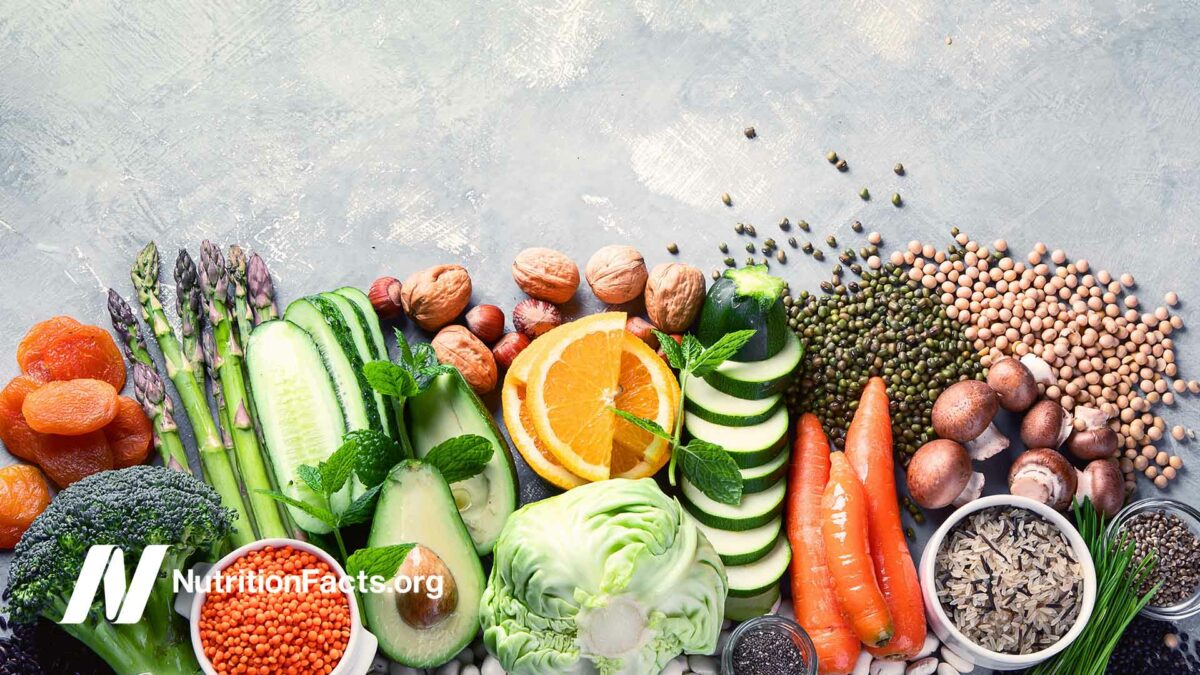
Those eating vegan had significantly lower IGF-1 levels and higher IGF-binding proteins than those just eating vegetarian, suggesting that the more plant-based one's diet becomes, the lower one's risk of fueling growth hormone-dependent cancer growth.

Vegans consuming 7 to 18 servings of soy foods a day may end up with circulating IGF-1 levels comparable to those who eat meat.
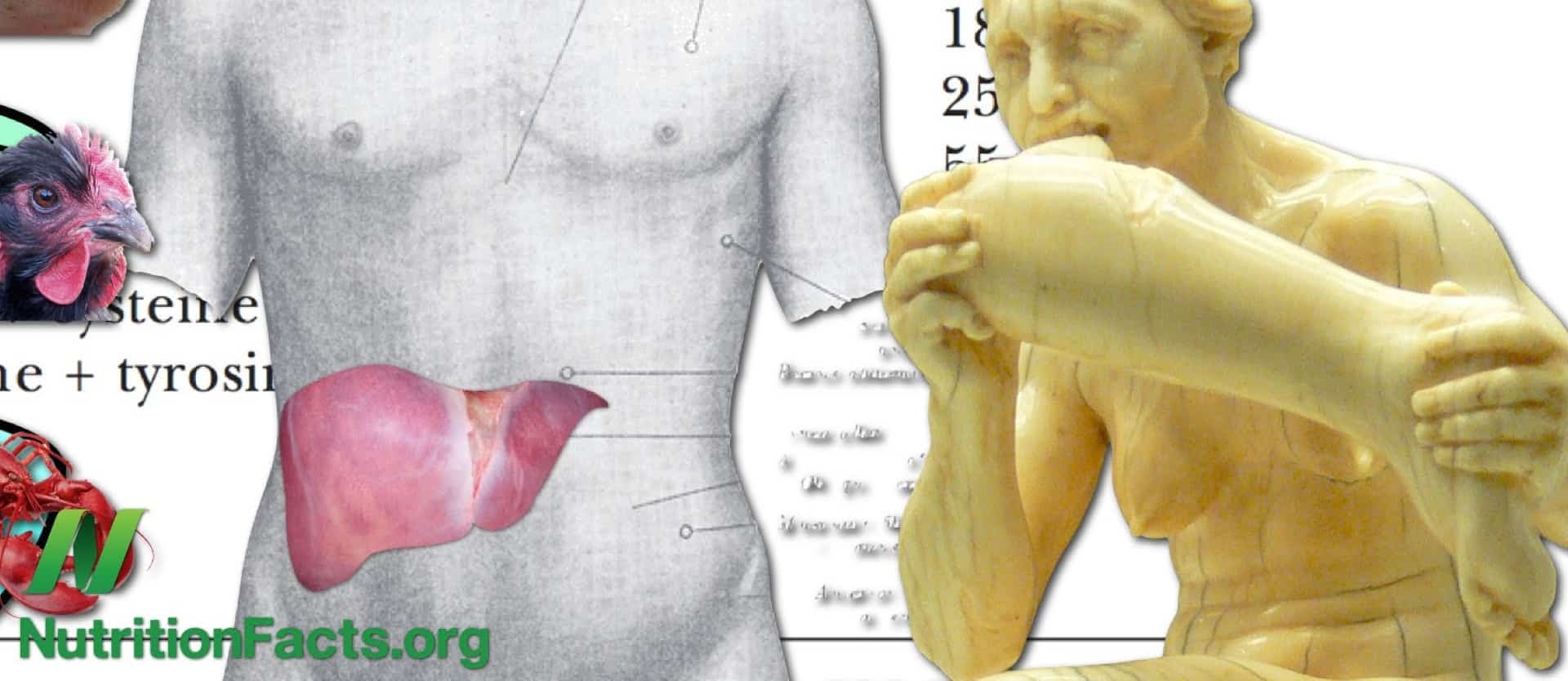
While animal proteins increase levels of the cancer-promoting growth hormone IGF-1, and most plant proteins bring levels down, "high quality" plant proteins, such as soy, may not significantly affect levels in either direction. This, however, may depend on the quantity consumed.
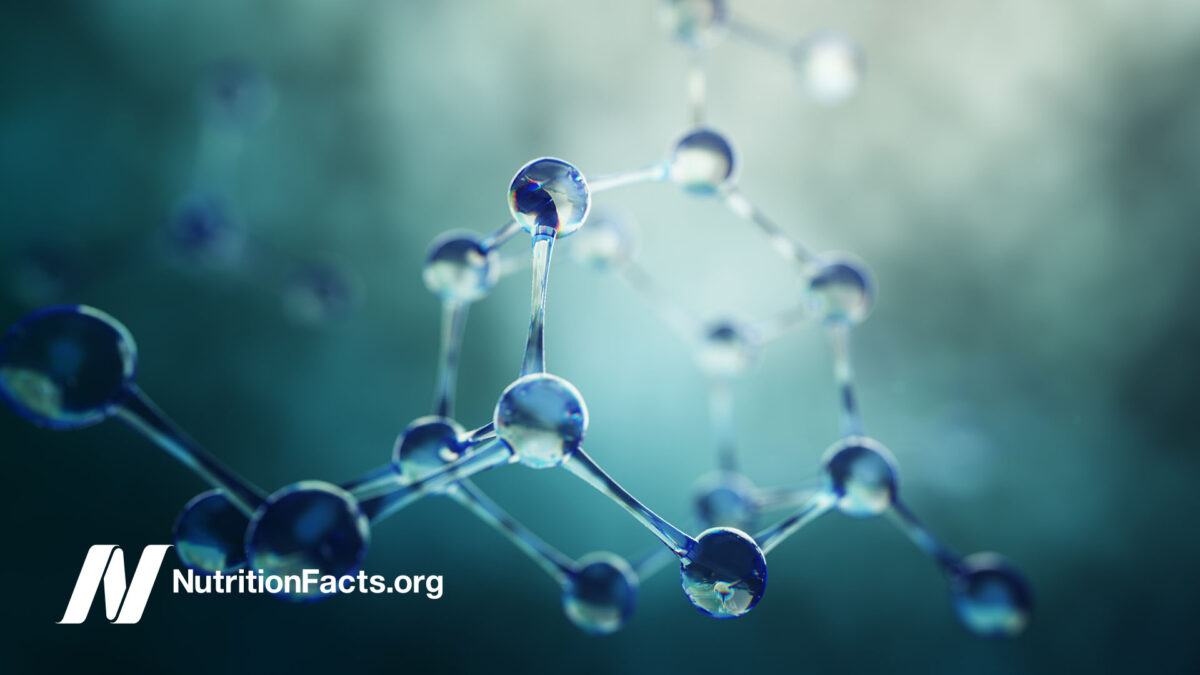
The reason animal proteins trigger the release of the cancer-promoting growth hormone IGF-1 more than plant proteins may be because the relative ratios of amino acids in animal proteins more closely resembles our own.

Plant-based diets may be protective against multiple sclerosis because IGF-1 can prevent our immune system from eliminating autoimmune cells.
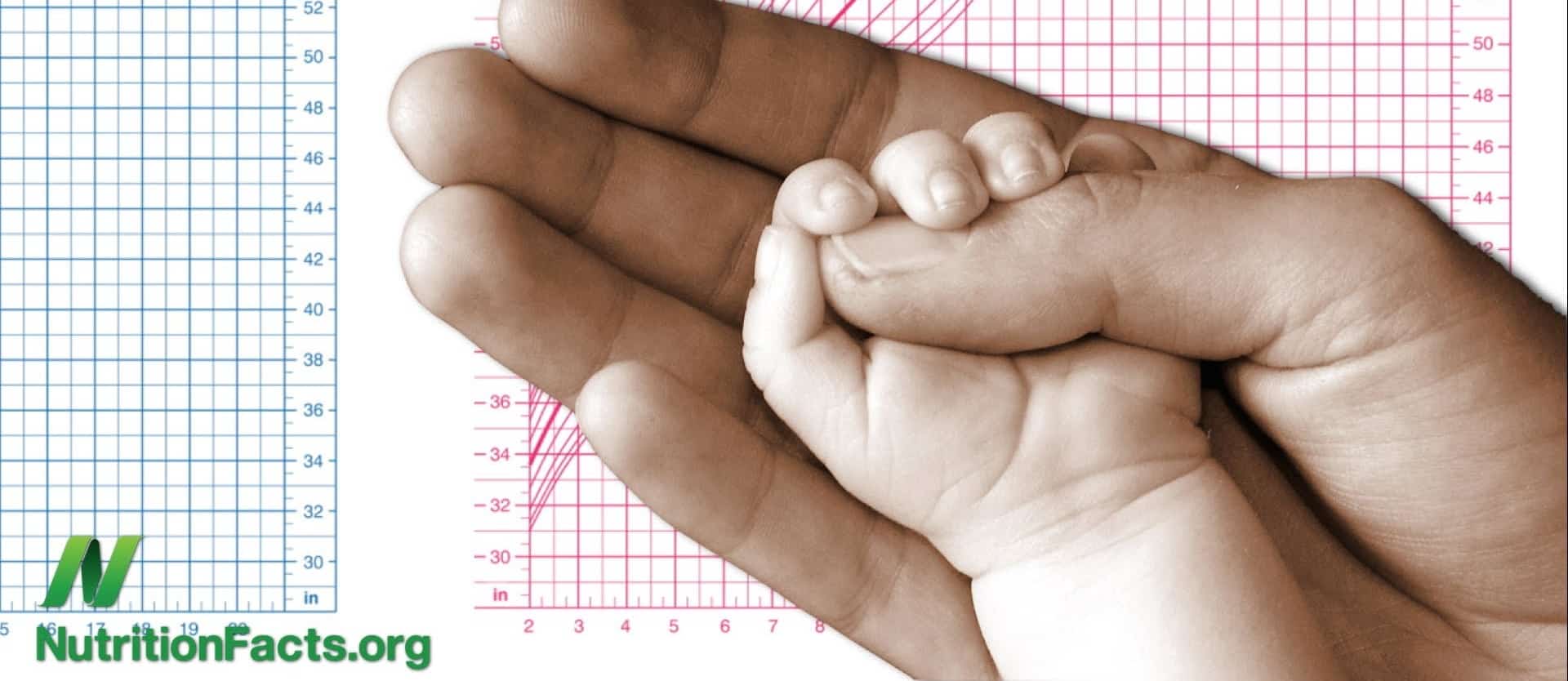
Insulin-like growth factor (IGF-1) is a natural human growth hormone instrumental in normal growth during childhood, but in adulthood can promote abnormal growth—the proliferation, spread (metastasis), and invasion of cancer.
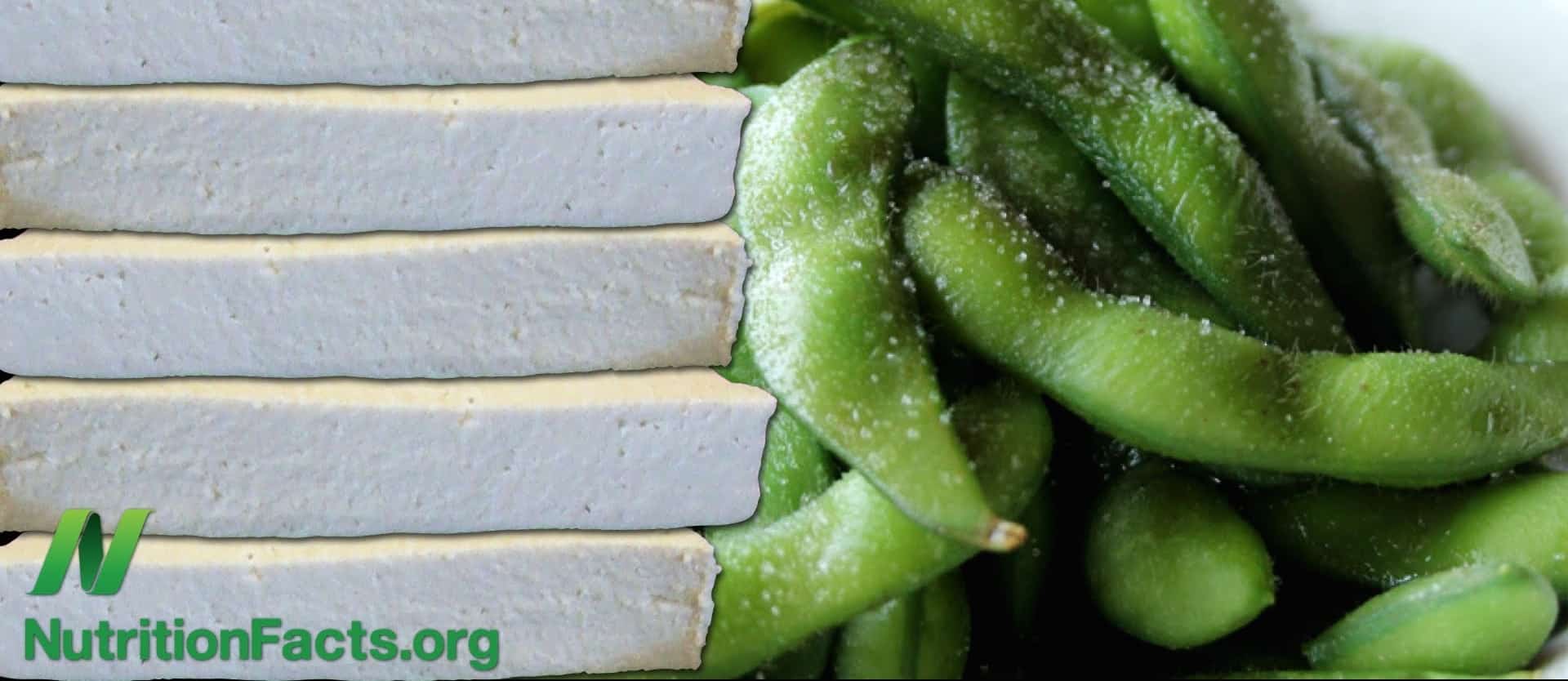
To maintain the low IGF-1 levels associated with a plant-based diet, one should probably eat no more than 3-5 servings of soy foods a day.

Lower levels of the cancer-promoting growth hormone IGF-1 in those eating vegan is not expected to affect their accumulation of muscle mass.
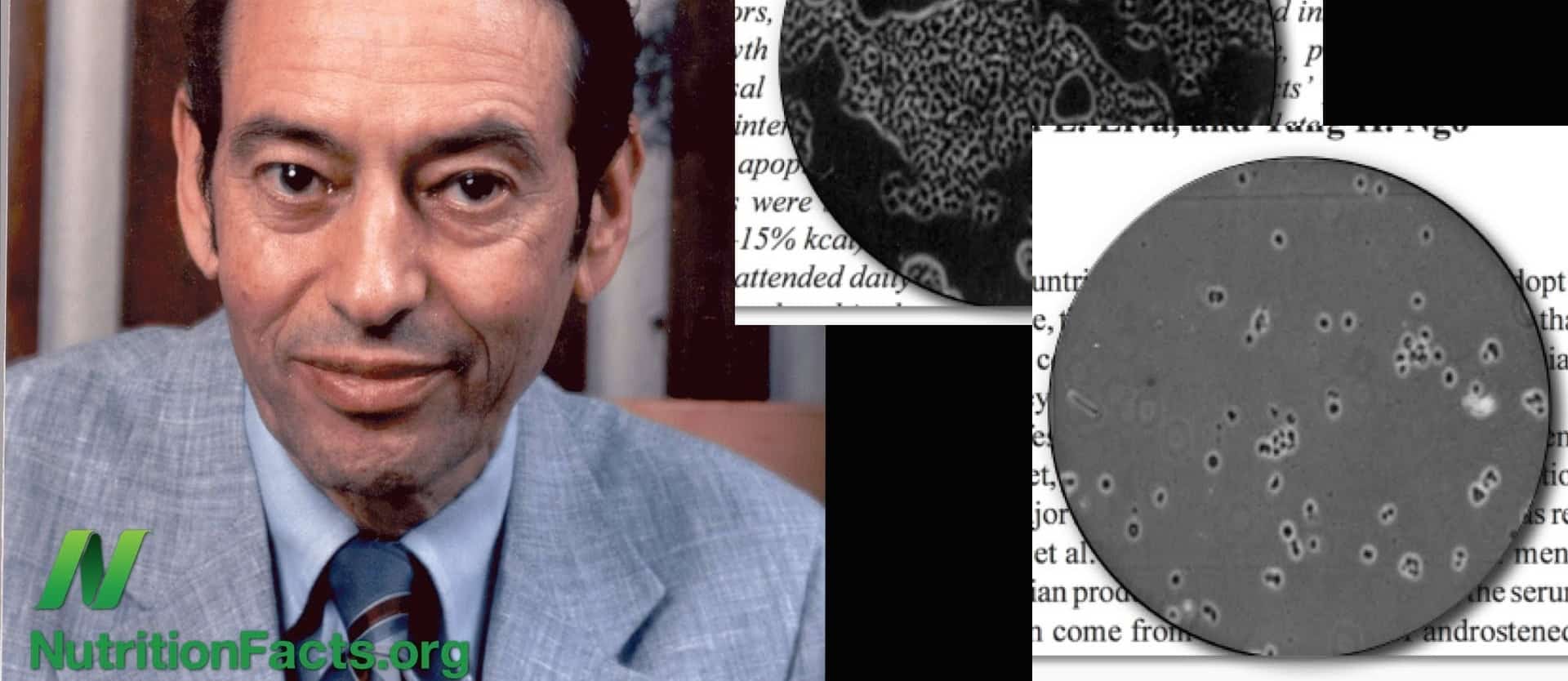
Lower cancer rates among those eating a plant-based diet may be a result of reduced blood levels of IGF-1, and enhanced production of IGF-1 binding protein.

Lifestyle medicine pioneer Nathan Pritikin, who reversed his own heart disease through diet and went on to help millions of others, wasn't a doctor or dietician, but an engineer.
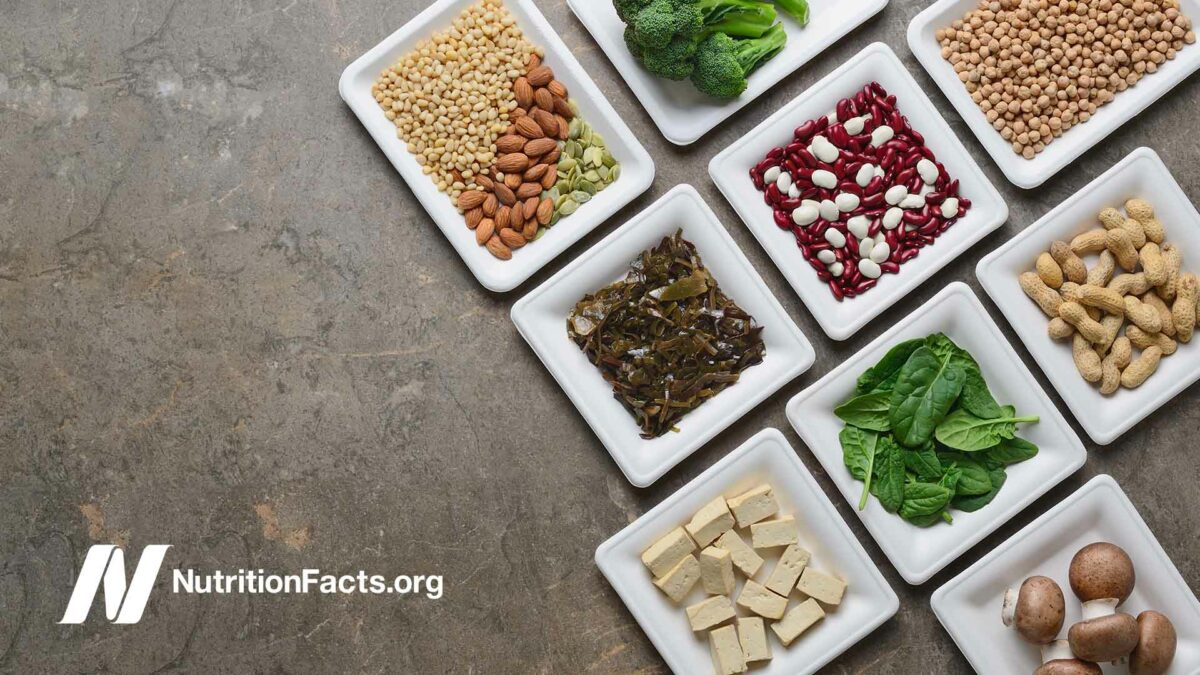
A research group is suggesting that human protein requirements may have been underestimated.

The early onset of puberty in girls associated with animal protein consumption may be due to endocrine-disrupting chemical pollutants in the meat...

Plant-based diets may be protective against multiple sclerosis because IGF-1 can prevent our immune system from eliminating autoimmune...

A research group is suggesting that human protein requirements may have been...

Lower levels of the cancer-promoting growth hormone IGF-1 in those eating vegan is not expected to affect their accumulation of muscle...

To maintain the low IGF-1 levels associated with a plant-based diet, one should probably eat no more than 3-5 servings of soy foods a...

Vegans consuming 7 to 18 servings of soy foods a day may end up with circulating IGF-1 levels comparable to those who eat...

While animal proteins increase levels of the cancer-promoting growth hormone IGF-1, and most plant proteins bring levels down, "high quality" plant proteins, such as soy, may not significantly affect levels in either direction. This, however, may...

The reason animal proteins trigger the release of the cancer-promoting growth hormone IGF-1 more than plant proteins may be because the relative ratios of amino acids in animal proteins more closely resembles our...